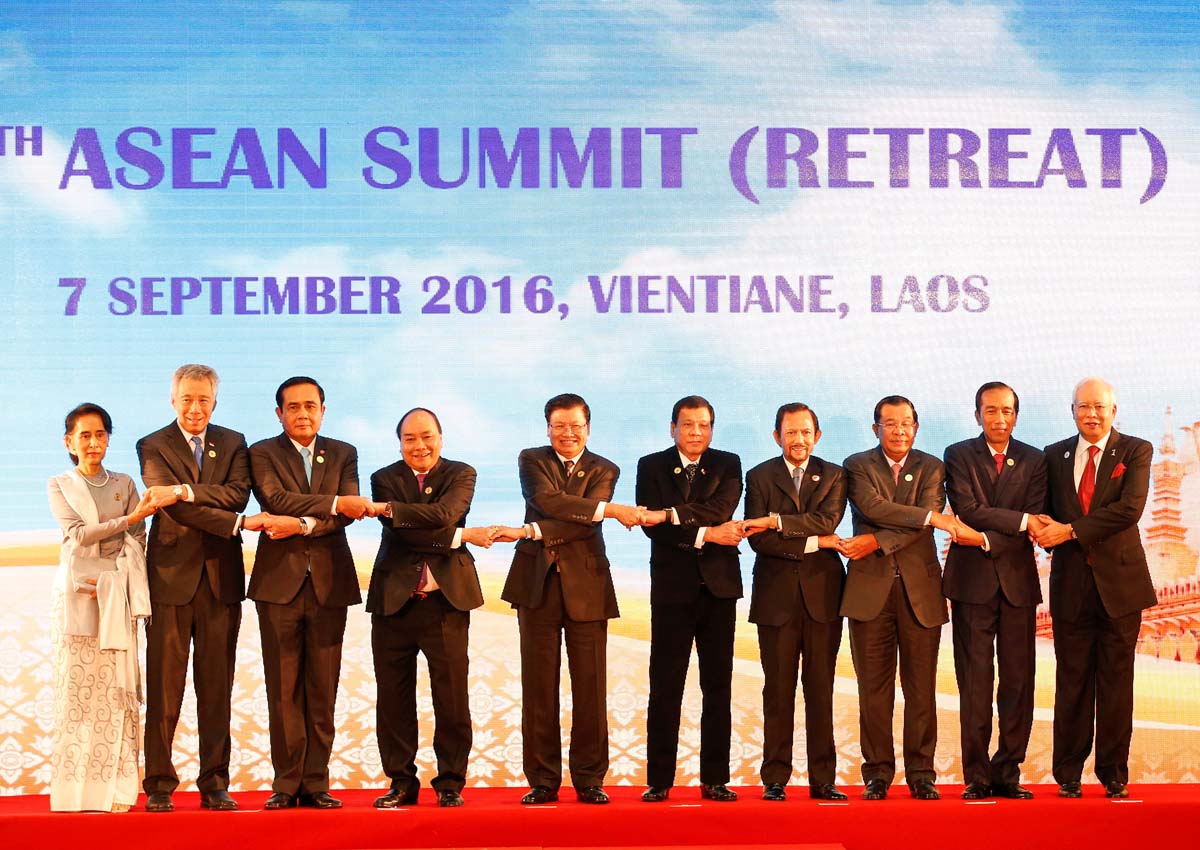The changing face of terrorism and its growing threat to the region make it one of three big issues confronting ASEAN, Prime Minister Lee Hsien Loong told ASEAN leaders.
Speaking at the 29th ASEAN Summit Retreat yesterday morning, Mr Lee zoomed in on terrorism, improving trade and maintaining ASEAN’s credibility as three areas where leaders in the region should intensify co-operation.
Chief among these is terrorism. While it is an issue that ASEAN leaders have discussed in recent summits, the threat has evolved, he said.
Radicalisation through extremist material on the Internet is a growing problem, and has resulted in lone-wolf attacks such as the truck rampage in Nice, France, and the nightclub shooting in Orlando in the US state of Florida.
“These are single individuals, self-radicalised, acting alone, difficult to stop,” said Mr Lee. “In Singapore too, we have been meeting some of these people, and we have picked them up, a steady trickle, one or two a month, and we see this as a continuing problem.” Terror groups in South-east Asia are also linking up with like-minded groups around the world, he pointed out. Groups like Jemaah Islamiah and Abu Sayyaf are talking to the Islamic State in Iraq and Syria (ISIS) or Uighur groups from China.
The frequency of attacks has also gone up, he added. “It used to be a significant attack every few months, now we hear of attacks every few weeks, sometimes every few days in different parts of the world,” he said, noting that attacks across Asian cities like Jakarta, the outskirts of Kuala Lumpur and Davao took place this year.
“The conclusion is we have to work more closely together, share intelligence, share our analysis of threats, counter extremist doctrines and exchange views, and take concerted actions against terrorist groups,” he said.
Among the countries that yesterday pledged to do more to fight terrorism in Asia was Japan. Japanese Prime Minister Shinzo Abe announced a 45 billion yen (S$597 million) anti-terrorism assistance package during the ASEAN-Japan summit.
It is to be disbursed over three years to its Asian neighbours. Japan’s plan aims to help build counter-terrorism capabilities such as in border control, enhance preventive education and efforts to counter extremist ideology, and provide hardware such as explosive detection equipment to governments.
Beyond terrorism, Mr Lee urged ASEAN leaders and dialogue partners China, Japan, South Korea and Australia to redouble efforts to conclude a high-quality Regional Comprehensive Economic Partnership.
The proposed trade pact involving the 10-member ASEAN and these and two other dialogue partners India and New Zealand can be a “viable pathway” to an eventual free trade area covering the Asia-Pacific region, together with the 12-nation Trans Pacific Partnership trade deal, he said, opening up new opportunities to these states’ businesses.
But leaders need to do more, such as explaining to their people the potential benefits while addressing concerns they may have, he said, noting that negotiations “have not progressed as quickly as we had hoped”.
Mr Lee also reiterated his call from the start of the summits for ASEAN leaders to speak with one voice and maintain the grouping’s credibility, even on divisive issues such as the South China Sea.
ASEAN leaders at their retreat yesterday discussed a broad range of issues, including terrorism, climate change, territorial disputes and maritime security.
yanliang@sph.com.sg

This article was first published on September 8, 2016.
Get a copy of The Straits Times or go to straitstimes.com for more stories.















































